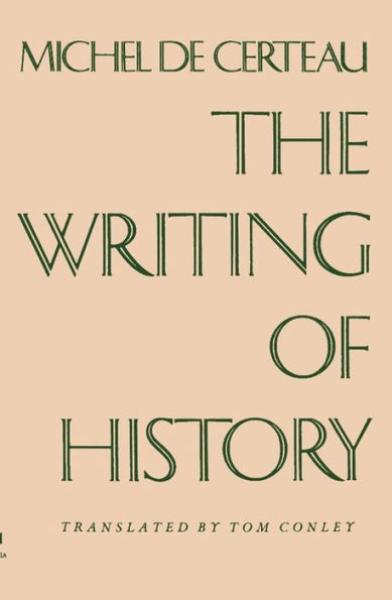Description
A leading intellectual member of France's Freudian school, Michel de Certeau combined principles from the disciplines of religion, history, and psychoanalysis in order to redefine historiography and rethink the categories of history. In The Writing of History, de Certeau examines the West's changing conceptions of the very role and nature of history itself, from the seventeenth-century attempts to formulate a "history of man" to Freud's Moses and Monotheism with which de Certeau interprets historical practice as a function of mankind's feelings of loss, mourning, and absence. Exhaustively researched and stunningly innovative, The Writing of History is a crucial introduction to de Certeau's work and is destined to become a classic of modern thought.
Although he has not yet gained the international reputation of a Foucault, a Bourdieu or a Derrida, the late Michel de Certeau was in their class as a thinker and and his spectrum of interests was even wider than theirs, ranging from theology, sociology, and anthropology.--French History
Erudite in the extreme... Brilliant and rewarding.--Voice Literary Supplement
The crowing work of the late Michel de Certeau is this volume of essays on historiography... Tom Conley has now translated the text into English, with lovely fidelity to de Certeau's mellifluous Gallic idiom. The book is a brilliant, disjointed, baffling work, brimming with complex metaphors, Franco-German metaphysics and a post-modern sensibility.--American Historical Review
From the seventeenth-century attempts to formulate a "history of man" to Freud's Moses and Monotheism, de Certeau examines the West's changing conceptions of the role and nature of history.
Although he has not yet gained the international reputation of a Foucault, a Bourdieu or a Derrida, the late Michel de Certeau was in their class as a thinker and and his spectrum of interests was even wider than theirs, ranging from theology, sociology, and anthropology.--French History
Erudite in the extreme... Brilliant and rewarding.--Voice Literary Supplement
The crowing work of the late Michel de Certeau is this volume of essays on historiography... Tom Conley has now translated the text into English, with lovely fidelity to de Certeau's mellifluous Gallic idiom. The book is a brilliant, disjointed, baffling work, brimming with complex metaphors, Franco-German metaphysics and a post-modern sensibility.--American Historical Review
Last updated on
Product Details
- Columbia University Press Brand
- Oct 29, 1992 Pub Date:
- 0231055757 ISBN-10:
- 9780231055758 ISBN-13:
- 368 Pages
- 8.4 in * 5.5 in * 0.9 in Dimensions:
- 1 lb Weight:




